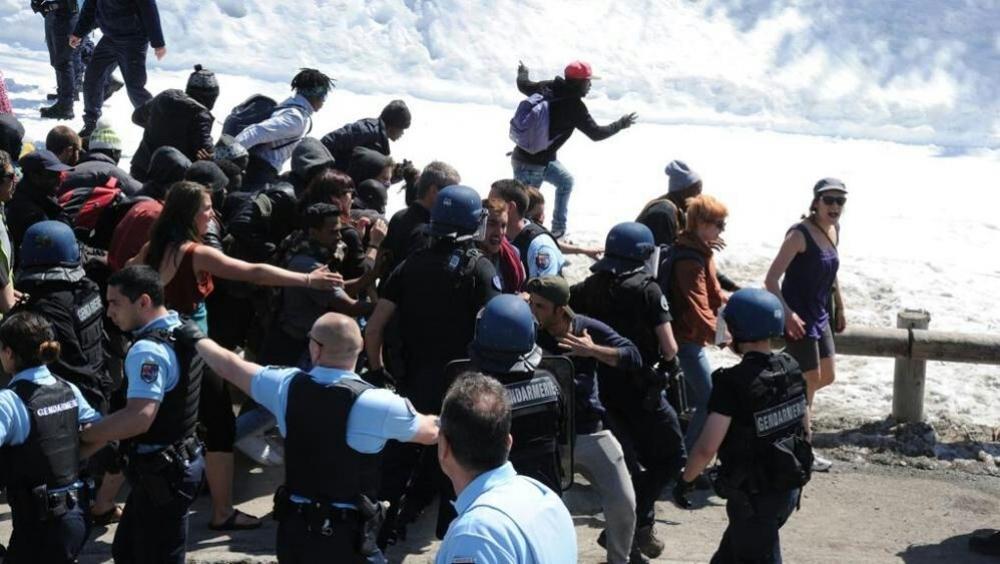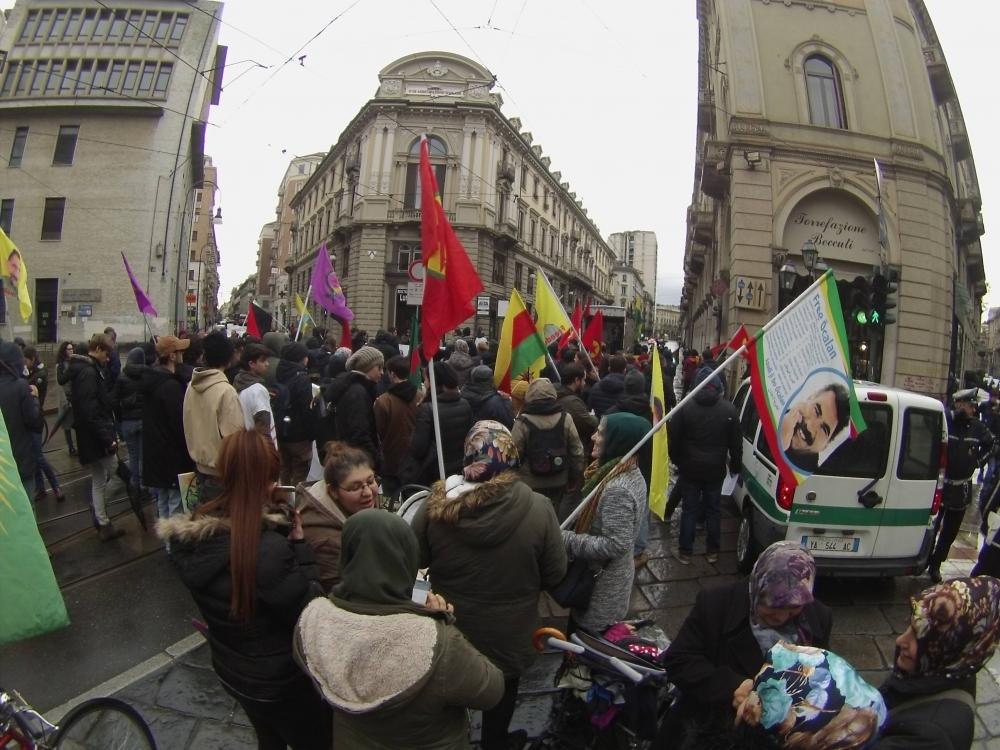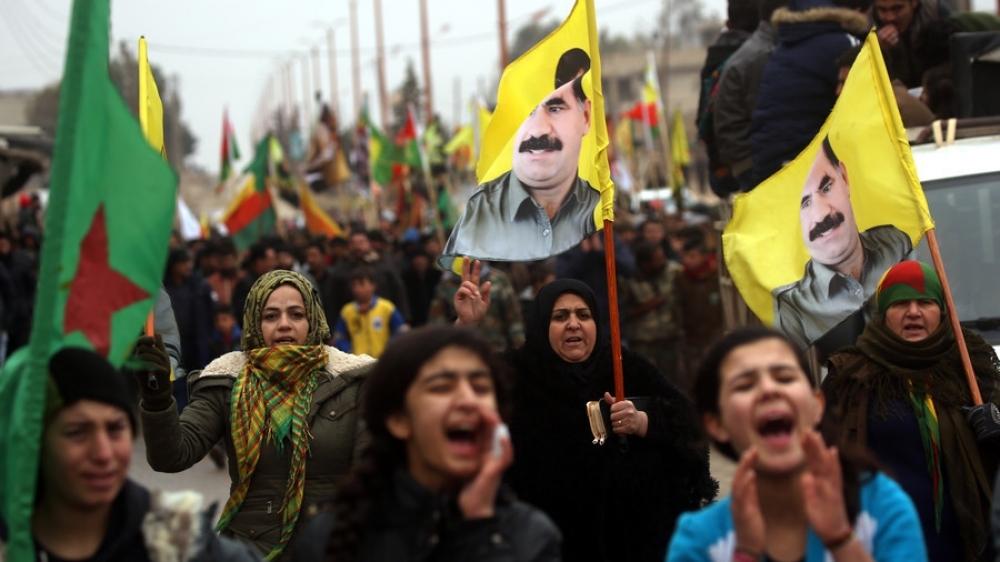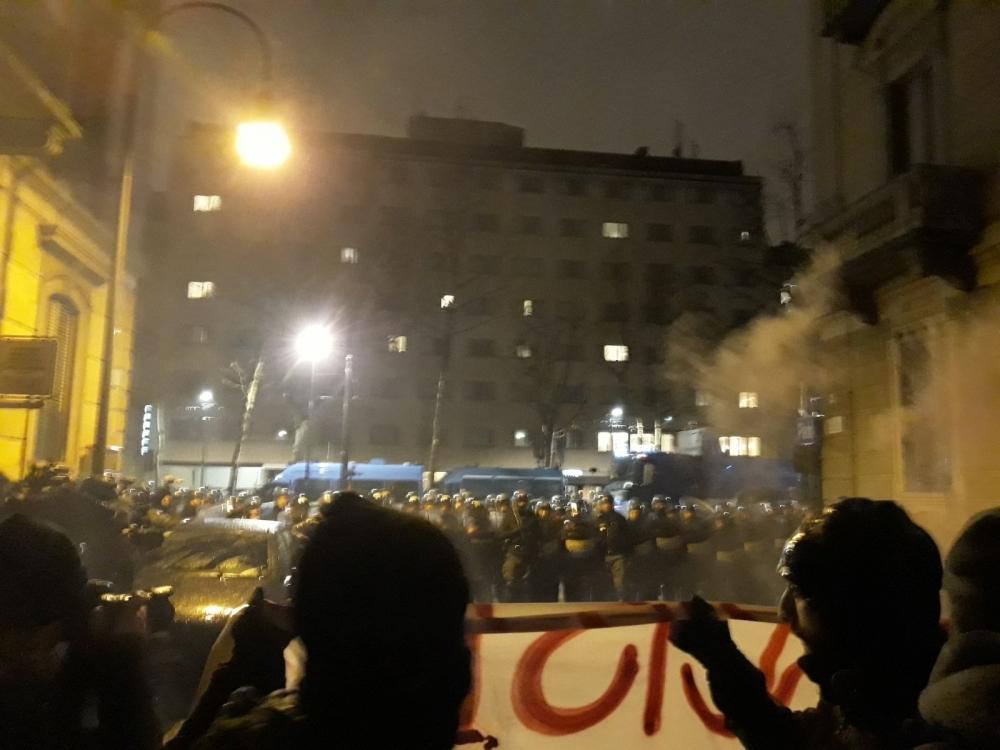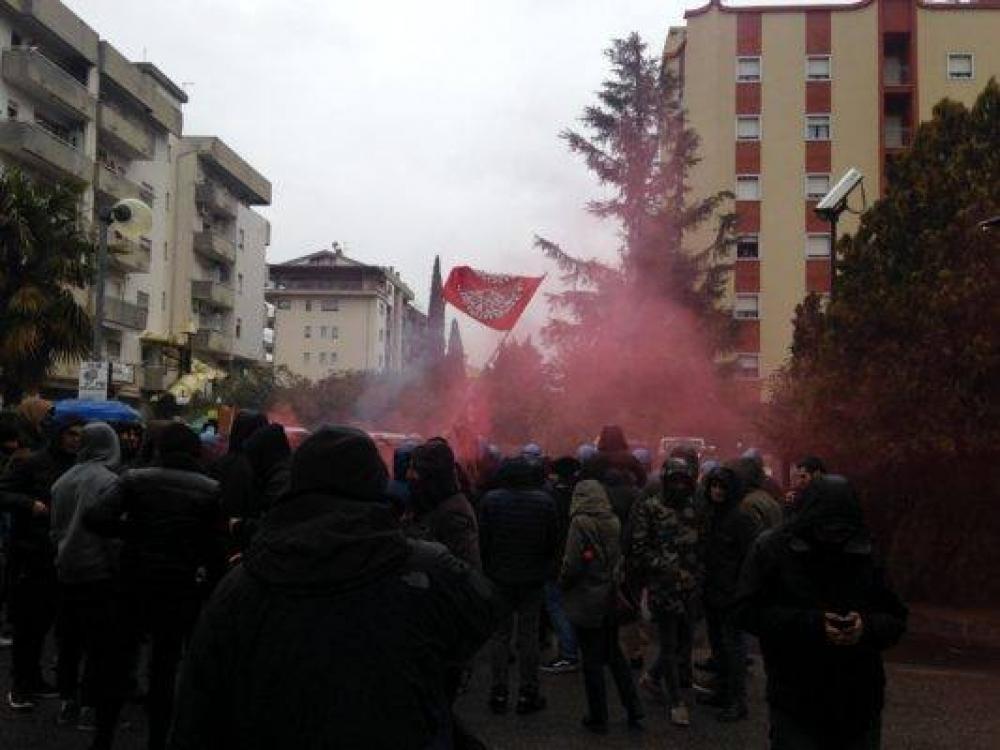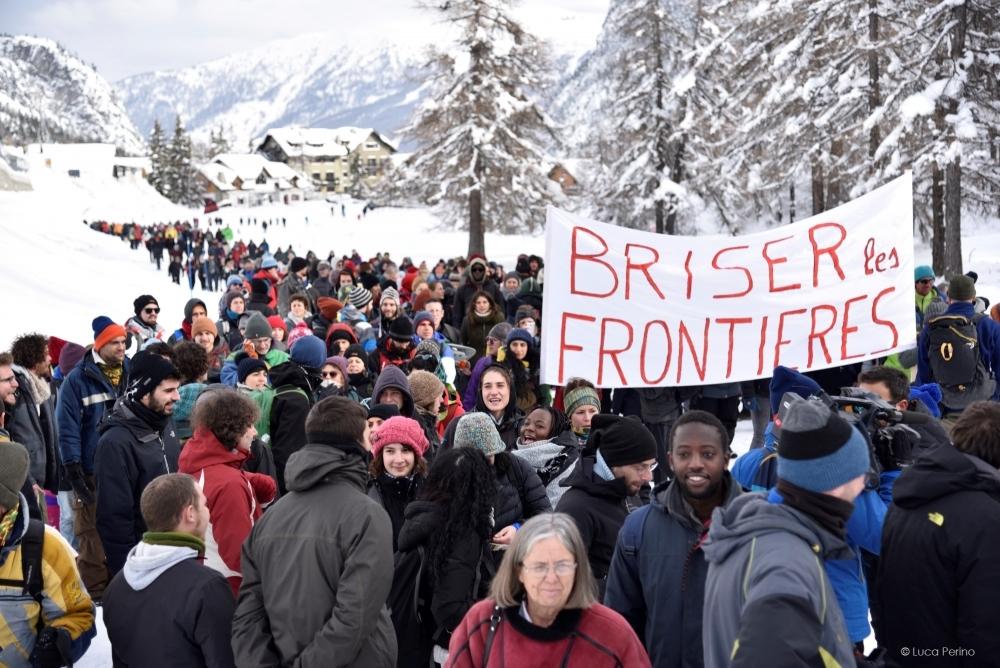
Reflections on April 12 and the political processes to come
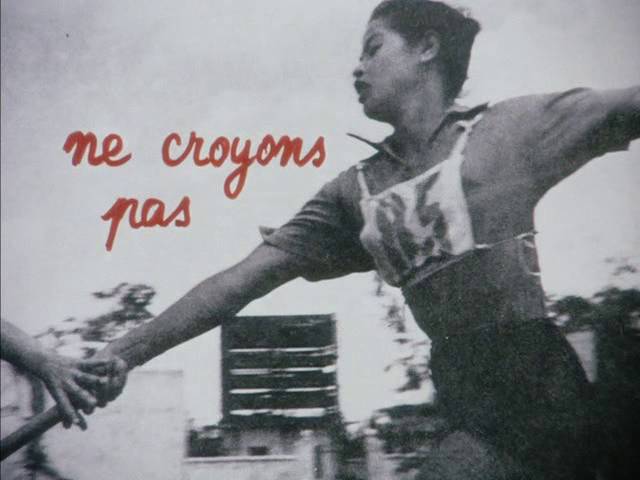
Temporality and autonomy
The day of April 12 featured ten thousands of people in the streets, in continuity with a process that, since last summer, represented the only recompositive proposal nationwide, in the political and social desert of a country that did not find yet a satisfactory grassroots answer to five years of full-blown crisis – and three years past the enforcement of increasingly antipopular and classist measures against old and new poors, precarious workers, youths, migrants…hence, that multifaceted world that today defines the condition of the proletarian men and women. When we do affirm this simple and incontestable fact, we do not mean to belittle or deny the existence of a proliferation of local processes, struggles, resistances – sometimes very generous indeed – that structure themselves through the labour sector, territorial struggles and processes of re-appropriation. Still, none of them, so far, managed to identify a common path and to provide an exemplary reference or drive.
The April 12 is the attempt to turn an antagonist political work with a mass perspective into a method. In this way, it makes sense to ponder over the relation between event and process, between deadline and continuity: beyond the childish and hypocrite ascertainment of the numerical gap with last October 19 (by the way, how many people were attending the No Monti day?) [1], April 12 renews some subjective conditions for the struggles in the territories. Surely, the fragmented character of the experiences of territorial struggle in itself does not originate THE political proposal capable to keep up to the overall attack of the counterpart. Moreover, it is true that these very experiences work towards strengthening and autonomously developing dates of mobilization, establishing new bonds and radicalising a space of political otherness. Without these experiences, there would not be any premises for an effective proposal of change not looking at the institutional and representative frames in politics.
The process of political construction of such events outflanks the ritual character of the “due date-event” of the counter-summit season [2] because it measures its own political character through the accumulation of social strength through the territories; it tries to develop and to broadly reproduce behaviors and indications pointing to antagonism. A capacity to autonomously call for social mobilization, to gather territorial struggles, to rise the subjects to a public, organisational and political level, is reaffirmed today, within and against the capital’s hypotheses of development.
Is it conceivable an October 19 without the antagonist and political growth process entrenched during the Tsunami Tour? [3] Is it imaginable an April 12 without the blooming of territorial struggling committees, from the smallest province to the largest metropolis? Without the slow but constant progression of the housing struggle committees into spaces for the organization of labour and non-labour, of income and services, that happened over these months?
An active factor in this process, dread of police departments and political elites, are the new social vanguards that grow proportionally with the conflicts qualitative character. April 12 marks one step beyond in the participation and availability of segments of the proletariat to think themselves as an antagonist subject. Leaving aside the failed attempts of the mainstream media to tell apart good and bad protestors and leaving behind those who, unabashed, kept jinxing and crying wolf, we claim that although we would surely not had been able to hold Piazza Barberini, the entire crowd of demonstrators accepted and even embraced the radicality of the event. And we’re far from saying that “labour” and precarity were not pivotal. Where did the movement go and lay siege and conflict? Beneath the Ministry of Welfare and Labour owned by Lega Coop [4]; therefore showing the political maturity of a crowd composition available to acknowledge and value, for the collective political interests, the indications of struggle emerging from the antagonist claims, by now pertaining not only to the loaders [5], and from the social habits to reject great events [6] – not only to be considered as public money squander, but as experiments of harsher forms of exploitation.
Everything else is just chatter and opportunism. There were those who did choose to not stand watching and took a chance instead, and those who pulled out without admitting it – realising that the change of phase entailed a more difficult scenario – by keeping a foot in both camps, without commitments, ready to jump on the bandwagon when all goes well or on the judiciary bench when something does not go so well. [7]
Then a convenient frame is established and a veneer of political analysis is provided to explain limits which are not just subjective (of the class in its entirety) but objective difficulties of transition between two phases in the country’s dull political life. We all know very well how things played out. To say that the limit was to have not spotted the European Union as THE Enemy against which to marshal the rage of the exploited is a lie (as well as a convenient excuse), because the first sentence of the demonstration manifesto featured in a big size the writing “No Trojka”, of which the EU is one joint (as if the Central Bank and the IMF weren’t as much as pivotal institutions in drafting those austerity measures that are impoverishing us). [8]
Class first
A very simple question immediately put out of action the know-it-alls, who in these days criticize from above the claimed failure of April 12 date: what do these contemporary keepers of a “what is to be done“ petrified through time, have to say to the heterogeneous composition of the April 12 crowd? Nothing! They bring back up the classic double joint of party and union, without any updates, corrections, reflections…as if the working class always stays the same, waiting for nothing else than the re-release of the “true” communist party (besides, available as a bunch, as assorted as harmless). [9]
On our side, instead, we try to inquire and endorse those behaviors of the social body that today express impatience to be possibly translated into otherness tomorrow. In them we read the production of early antagonist turmoils, whose political value lies not in the level of explicit consciousness, but rather in their intrinsic refusal and rebellion as embryos of future developments.
We will still be accused of nostalgic “workerism” [10] but we keep thinking about political work not only as analysis, as much as accurate, of the forms of dominion and of the contradictions in capitalist development. Antagonism to the capital does not lies in translating these contradictions into a matter of consciousness, rather it revolves around the prospects of growth of an antagonist subject (soggetto-contro); that is, to the continuous problematisation of the separate character between political organization and incompatible social behaviors. The maturity of the growing conflicting processes, the antagonistic development of a re-composition, does not linearly follow the frontism of political subjects, nor it does obey to the “right” watchwords, inferred by the form of capitalist domination (European Union).
Briefly, the problem of revolutionary disruption is the one pertaining to the development of an incompatible subjectivity, and not to how much the exposure of a systemic counterpart is focused.
Someone, who deeply pondered over the political and historical meaning of defeats and victories, once wrote that “the revolutionary progress did not make its way through its tragicomic immediate achievements, but on the contrary, by the creation of an intensive, powerful counter-revolution, by the creation of an opponent, in combat with whom only, the party of insurrection ripened into a really revolutionary party”.
The rise at public and media level of the police violence marks a disruption in the tightness of the counterpart’s discourse. The extreme political character and social intensity of the ongoing struggle exceed the representations that take the colors of the capes as an excuse (whether blue or black) [11]. If the prefect Pecoraro is forced to show flexibility about the introduction of ID numbers for police departments [12], that’s because of the need to neutralize the reach of this dispute, by moving the contradiction beyond: no bad apples anymore [13], and no more social incompatibility as well. On the contrary, for us the dates of April 12 and April 16 [14] represent steps forward for the legitimacy of the conflict, actually given by the capacity of opposition demonstrated by broad social layers.
Social figures: who struggles for housing?
Also thanks to April 12 we are leaving behind ourselves an arrangement of politics as a separate testimony of the materiality of social relations. Starting from a logistical, social, communicational and hence political ability of cooperation, the Roman “square” did generate social conflict because the housing struggle became a political space of opposition – and not a simple summation of claims. What matters here it is not to raise as a champion of the revolution a struggle over the others, rather to detect antagonist characters, that may be potentially reproducible on other grounds.
The housing struggle in the last year and half is acquiring these characters of reproducibility, also starting from an important contradiction on a systemic level (do you remember subprime?), above all because the protagonists of that struggle were not merely satisfied of carving out a space for managing this issue themselves. But rather they fulfilled the necessity of connecting “the self-organized satisfaction of needs” and the growth of the movement. It is not by any chance today that no claim (from those related to territory to those of the so-called “labour sector”) can achieve any result without standing, concretely and politically, in an antagonist position. And when we refer to this we do not mean a simple utterance of a NO on one’s own information website, but rather the capacity of entrenchment of an antagonist project.
 Because of this – and against anyone considering it as a limit – we get a glimpse of an asset, yet to be developed, in the housing struggle fulcrum. Occupations and resistance to evictions, anti-eviction and anti-foreclosures pickets, desks and spaces for re-appropriation, blockades and self-reductions [15] in department stores: the mobilization of a dignified housing crossed the border of the social emergency or of political self-referentiality by expressing – not only in tendency anymore – broad spaces of politicization for various social generations. Young precarious workers and unemployed, migrants and failing entrepreneurial figures, often intersecting the feminine specificity, represent for us (also from a theoretical point of view, in addition to our experience) the new stories of the incoming proletariat…social marginalization my foot! Not by any chance the contemporary mechanisms of accumulation and valorization through the system of debt – which runs over, crushes and breaks up the space of social reproduction – can be tracked down here. The struggles for housing can – and not in a preset way – stand at the crossroads with a myriad of other nodes of proletarian condition to be recomposed. On the other hand, besides the supporters of labour-ism, what is the wage condition today without a reflection on the general threat of debt on life today, whereas the form of living labour is inseparable from the social dimension?
Because of this – and against anyone considering it as a limit – we get a glimpse of an asset, yet to be developed, in the housing struggle fulcrum. Occupations and resistance to evictions, anti-eviction and anti-foreclosures pickets, desks and spaces for re-appropriation, blockades and self-reductions [15] in department stores: the mobilization of a dignified housing crossed the border of the social emergency or of political self-referentiality by expressing – not only in tendency anymore – broad spaces of politicization for various social generations. Young precarious workers and unemployed, migrants and failing entrepreneurial figures, often intersecting the feminine specificity, represent for us (also from a theoretical point of view, in addition to our experience) the new stories of the incoming proletariat…social marginalization my foot! Not by any chance the contemporary mechanisms of accumulation and valorization through the system of debt – which runs over, crushes and breaks up the space of social reproduction – can be tracked down here. The struggles for housing can – and not in a preset way – stand at the crossroads with a myriad of other nodes of proletarian condition to be recomposed. On the other hand, besides the supporters of labour-ism, what is the wage condition today without a reflection on the general threat of debt on life today, whereas the form of living labour is inseparable from the social dimension?
On the road of this process the rift between political elites and class subjectivities available for conflict deepens. This polarization increase the distance with the system of representative politics and delegation, in the meantime it tries to give itself its own tools of representation, constitution of discourse and reproduction of incompatible social practices. The challenge which was presented is that of construction of a  political and social militancy on many levels: from being a reference point in the contexts to set goals and achieve results that increase one’s own social strength and political affinity.
political and social militancy on many levels: from being a reference point in the contexts to set goals and achieve results that increase one’s own social strength and political affinity.
The accusation of confusion on the rallying cries of the #12A day (Job Act [16], housing plan, Renzi government, trojka) is the shortsightedness of those subjects unaccustomed to verify their own project ambitions in relation to the needs of the struggling subjectivity. The political character of Renzi’s Housing Plan and of the Article 5 [17] – an out-and-out political dispositif of measurement of the power relations at stake – directly assault instead the stiffnesses of the real processes of mobilization. In confirmation of that, far from stopping on the spectacularisation of the event, the 12th of April continued in the resistance at the Montagnola on the 16th. Instead of speculating on hills and slopes, playing the role of new Sun Tzus [18], the political reflection has to be focused on the intensity of the attack that the movements today launched against the system of rent – forcing it to react and multiply the frontlines of the clash.
Prospects
Renzi’s acceleration is an attempt to capture and neutralize the anti-austerity and anti-political moods, which grew during the last year. If April 12 had the credit for showing all the contradictions of the government’s ephemeral politics, bringing back in the spotlight the issue of social needs and their potential of disruption, we cannot surely hold only on what we produced so far. The problem of detecting, not as much the main features of the productive relations as – in a phase of expansive austerity – the contexts and the subjectivities of expropriation, arises.
The stiffness produced at the level of the spaces of re-appropriation and of the social resistance must be intensified and broadened by detecting new possibilities of breaking the present social model based on growing debt and precariousness. The new measures contained in the Economic and Financial Decree, together with the Job Act, express one-way cuts to public spending and social welfare, devaluation of labour, progressive weakening of the collective bargaining, precarization of labour, wages restraint – a set of factors that, altogether, depress internal demand, lower growth, reduce occupation and increase debt.
 If financialization and a more unscrupulous strategy of accumulation based on the Electrolux-Marchionne model [19] represent the lines of systemic reconstruction, on our side this investment on the productivity of capital cannot but emphasize new spaces of hostility to build. To increase our “social cost”, to make our unavailability to submission weigh on the balance of social relations, outlines in a nutshell some key points of the antagonistic project. If the welfare is increasingly deploying itself as a dispositif of debt and social blackmail, to bet on the ambivalence of the current youth precarious composition could mean to start practicing more enduring forms of re-appropriation of services and of a different valorization of one’s own faculties. A condition, that of the youth precariat, that between education bubble and unemployment can start questioning itself about how and which forms of life can satisfy their needs, in the opposition against a system of legality increasingly translated into practices of collection and monetization of what it is needed in order to survive.
If financialization and a more unscrupulous strategy of accumulation based on the Electrolux-Marchionne model [19] represent the lines of systemic reconstruction, on our side this investment on the productivity of capital cannot but emphasize new spaces of hostility to build. To increase our “social cost”, to make our unavailability to submission weigh on the balance of social relations, outlines in a nutshell some key points of the antagonistic project. If the welfare is increasingly deploying itself as a dispositif of debt and social blackmail, to bet on the ambivalence of the current youth precarious composition could mean to start practicing more enduring forms of re-appropriation of services and of a different valorization of one’s own faculties. A condition, that of the youth precariat, that between education bubble and unemployment can start questioning itself about how and which forms of life can satisfy their needs, in the opposition against a system of legality increasingly translated into practices of collection and monetization of what it is needed in order to survive.
July 11 in Turin, on the occasion of the European Summit on youth unemployment, will be yet another date to be constructed in pursuit of new spaces of antagonistic politicization. We do not want to re-edit the counter-summits that we have already seen, nor parades of political elites. It is not just a matter of setting a rallying cry for our comrades but it’s rather a matter of gathering together all the people who are paying for the crisis, although sending clear signals that they won’t do that any longer. We will commit ourselves to multiply the battlegrounds…
Infoaut
[1] A massive demonstration called by grassroots unions and by a part of the movement in October 2012 in Rome against the Monti government in charge by then; in spite of its great attendance of 150.000 people, its platform was quickly marginalized by a lack of adequate media coverage and practices, as well as other shortcomings in its continuity and organization through the territories.
[2] A period ranging from the last years of the XX century to the early ones of the XXIst that featured protests focused on widespread criticism and opposition against the international institutions and massive hostile attendance to their summits; a season characterized, for what concerns the dominant players in the Italian movement by then, by extreme aestheticism, and a certain degree of exploitation of subsequent cycles of struggles – in order to influence representative leftist party politics and secure some concessions and political spaces of action.
[3] A massive wave of housing occupations in the capitol, aimed to tackle massive real estate speculation project and that was repeated two times after October 19 as well.
[4] A reference to the Minister of Labour Poletti, a former executive of the LegaCoop league of institutional cooperatives; the latter, far from retaining any self-management and worker welfare principles, became powerful economic players and bankrollers for the system of the parties; and Poletti himself, on behalf of Renzi, drafted a decree that further extends precarity of labour, in a similar way to the Hertz IV law some years ago in Germany.
[5] These logistics’ workers, most notably in the Emilia-Romagna region, are among the most harassed by the LegaCoop system, with bogus contracts, poor labour rights and hindrances to grassroots unions.
[6] For example the Turin 2006 Olympics or the Milan 2015 Expo; such events allow the pillage of public money by mafia-related enterprises and the system of the parties.
[9] A reference to the plethora of para-institutional Communist parties in Italy, relegated on the fringes of political and social life by their own sectarianism and extremely ideological character
[10] The “workerist” heterodox Marxist tendency whose analyses and inquiries on class composition in Italy in the ’60ies paved the way for the Autonomia Operaia and the autonomous movement
[11] Criticism against a small part of the demonstration re-enacting the Tute Bianche tactics of wearing coloured gear during clashes, in order to focus attention on themselves; a short-sighted one, considering that, as stated above, the entirety of the demonstrators embraced a radical stance and practices
[12] Which Italian police agents do not have, thus being relatively unidentifiable during demonstrations; the battle for police ID numbers has been a longstanding one by institutional radical left parties and parts of the movement, though this measure did not lessen police brutality in other countries.
[13] Widespread grassroots and mainstream media coverage of police violence during the demonstration – as well as other episodes of police brutality in recent years, which sometimes resulted in dire injuries and murders – greatly raised in comparison to previous events awareness about the number and the abuses of “bad” cops.
[14] A reference to the massive eviction operation carried out by the police on April 16 at the Montagnola neighbourhood in Rome, marked by heavy clashes and resistance by the 200 families under attack
[15] Self-reductions are arbitrary reductions of the price of goods and services carried out by the underclass, in order to make up for the value of their labour taken away from them by capitalist exploitation (short of an outright esproprio, a direct, public and mass-scale re-appropriation of goods). They were a common practice of the Italian autonomous movement in the ’70ies, and are still periodically carried out to this day.
[16] The Jobs Act would allow the bosses to renew fixed term contracts for 8 times in three years, and to cancel all the safeguards enjoyed by the newly hired workers in the same time range; it also envisages a form of dole meant to reduce the quantity of the fairly wide range of aid that unemployed workers enjoy in Italy, and its amount.
[17] The article 5 of the Housing Plan decree prevents occupiers from taking residence in squatted buildings and get connected from there to water, gas and other services.
18] Against specious criticism addressing the allegedly poor management of the 12A battleground by the protestors while not considering the broader consequences brought about by that style and consciousness of protest.
[19] Sergio Marchionne, CEO of FCA (the former FIAT, Fabbrica Italiana Automobili Torino carmaker company) was able to collect considerable state aid for the company, tackle unions and impose heavier work shifts by threatening to relocate production; Electrolux, a Swedish manufacturer of household appliances, is threatening to leave the country as well, unless the workers’ 1400€-wages are cut by half and their benefits are further diminished.
Ti è piaciuto questo articolo? Infoaut è un network indipendente che si basa sul lavoro volontario e militante di molte persone. Puoi darci una mano diffondendo i nostri articoli, approfondimenti e reportage ad un pubblico il più vasto possibile e supportarci iscrivendoti al nostro canale telegram, o seguendo le nostre pagine social di facebook, instagram e youtube.












